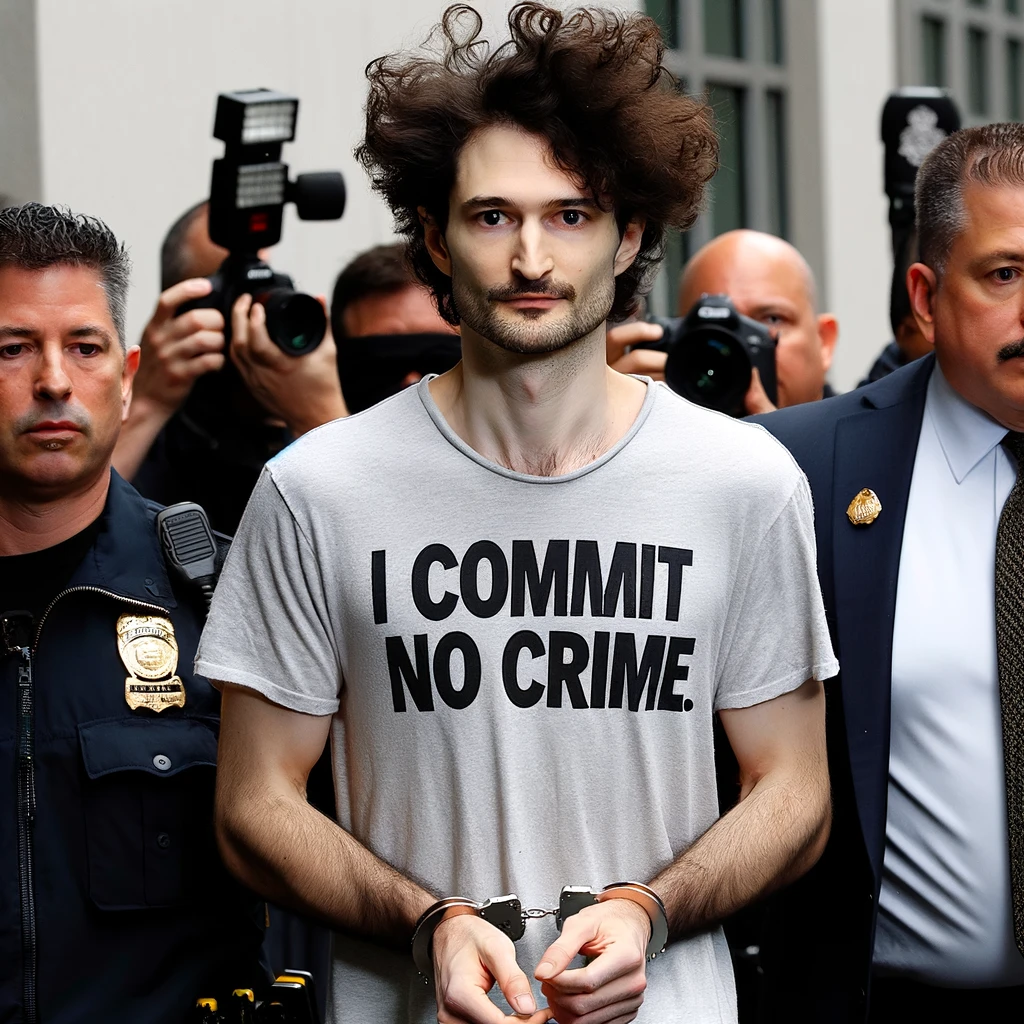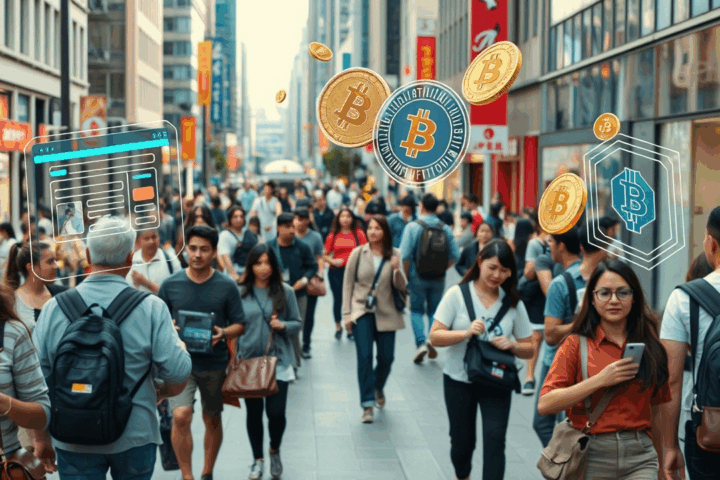On numerous occasions, Sam Bankman-Fried (SBF), the disgraced crypto mogul of the then-$32 billion crypto empire FTX, asserted his belief that his actions were not in violation of the law.
His steadfast denial, however, stood in stark contrast to the court’s verdict, which found him guilty on seven criminal charges, including fraud and conspiracy and sentenced him to 25 years in prison.
Even before and throughout the tumultuous proceedings, SBF’s public statements veered between denial and blame.
Following his sentencing, the fallen crypto king spoke for the first time and expressed his disbelief at the legality of his actions, saying, “I never thought that what I was doing was illegal.”
He also acknowledged his personal failure to meet his ethical benchmarks, admitting, “But I tried to hold myself to a high standard, and I certainly didn’t meet that standard.”
During his sentencing last week, U.S. Federal Judge Lewis Kaplan delivered a scathing indictment, encapsulating the sentiments shared by many of Bankman-Fried’s critics.
“I am not diminishing the harm. The brazenness of his actions. His exceptional flexibility with the truth. His apparent lack of any remorse. I want to add one further thought. I did not think it a fruitful use of time to spell out every lie,” Judge Kaplan said.
“When not lying, he was evasive, hair-splitting, trying to get the prosecutors to rephrase questions for him. I’ve been doing this job for close to 30 years. I’ve never seen a performance like that,” the federal judge added.
Despite his assertions of innocence, Judge Kaplan accused SBF of perjury and criticized him for showing no remorse for the crimes committed.
In interviews, SBF adamantly denied any involvement in fraudulent activities, attributing FTX’s substantial losses to mislabeled internal accounts. Yet, he also admitted to mistakes and expressed regret for the fallout that ensued.
Bankman-Fried stepped into the spotlight at the New York Times’ Dealbook Summit and was interviewed by journalist Andrew Ross Sorkin shortly after FTX and its affiliated companies filed for bankruptcy in November 2022.
The crypto executive staunchly denied any involvement in fraudulent activities, asserting, “I didn’t ever try to commit fraud on anyone. I didn’t knowingly co-mingle funds.”
In the face of mounting scrutiny, SBF’s explanations raised more questions than answers.
Bankman-Fried outrightly attributed the substantial losses at FTX to mislabeled internal accounts, asserting that Alameda’s actual position, hidden within a hard-to-detect account, was “billions of dollars larger than it appeared to be.”
In another instance, the founder of Alameda Research claimed, “These problems are problems which I believe happened over the last year or so. And I haven’t been running Alameda during that year. I was not deeply aware of what was going on.”
Bankman-Fried also admitted to feeling “heavily pressured” to involve FTX’s U.S. subsidiary in bankruptcy proceedings, attributing this decision to poor information from “people I no longer believe were acting in the interest of customers.”
When asked in another interview about potential fund redirection to Alameda, SBF unequivocally responded, “I did not know that there is any improper use of customer funds.”
SBF pleaded not guilty in court and released a statement at the time, asserting, “I didn’t steal funds, and I certainly didn’t stash billions away.”
But Bankman-Fried is remorseful, according to ABC.
“I’m haunted, every day, by what was lost. I never intended to hurt anyone or take anyone’s money. But I was the CEO of FTX, I was responsible for what happened to the company, and when you’re responsible it doesn’t matter why it goes bad,” SBF said.
“I’d give anything to be able to help repair even part of the damage. I’m doing what I can from prison, but it’s deeply frustrating not to be able to do more,” he added.
Bankman-Fried’s denial of the allegations against him may be influenced by his belief in effective altruism, which encourages actions aimed at maximizing societal benefit from a utilitarian perspective.
This belief system could potentially influence how individuals, including Bankman-Fried, justify their decisions and actions, perceiving them as aligned with a greater good or a broader mission to benefit society, even when those actions face scrutiny or legal and ethical challenges later on.
However, without explicit statements from Bankman-Fried linking his defense or denial directly to his belief in effective altruism, any connection remains speculative.
Individuals often draw upon a complex set of beliefs and justifications for their actions, and it’s important to consider the multifaceted nature of personal motivations and ethical frameworks when analyzing their behaviors and public statements.
Read More
- Apology Accepted? Bankman-Fried’s 25-Year Sentence Sparks Disillusionment in Crypto Circles
- Damage Control: Prosecutors Reveal Bankman-Fried’s Plan For Image Rehabilitation After FTX Fallout
- After the Gavel Fell: What Fate Awaits SBF Lieutenants Ellison, Singh, and Wang?
Yona has no crypto positions and does not hold any crypto assets. This article is provided for informational purposes only and should not be construed as financial advice. The Shib Daily is an official media and publication of the Shiba Inu cryptocurrency project. Readers are encouraged to conduct their own research and consult with a qualified financial adviser before making any investment decisions.










